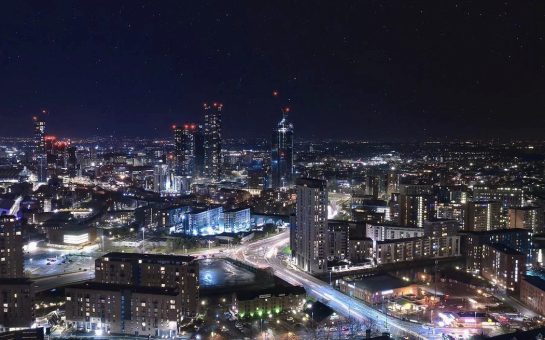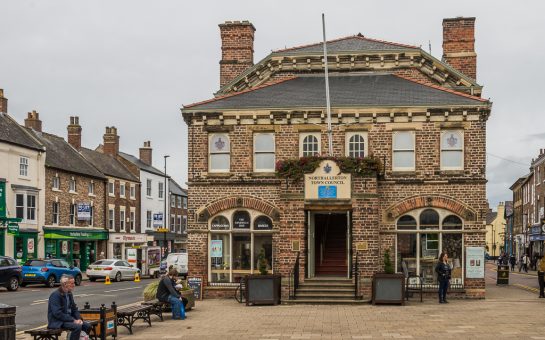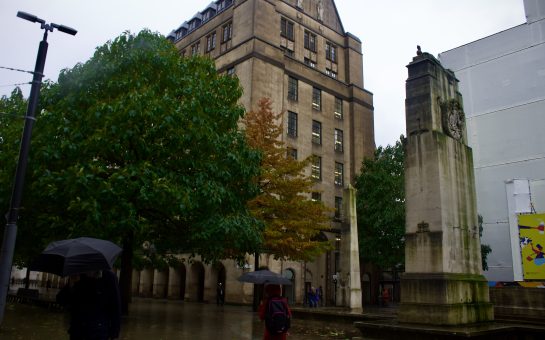At first glance, Chancellor Rishi Sunak’s recent spending review looks promising for the North, with billions of pounds being pledged to causes aimed at closing the regional divide.
Upon closer inspection, however, things are a bit more complicated than they seem.
Here are five main takeaways from the recent spending review and what it will likely mean for those in the Greater Manchester area.
- The public sector pay freeze will disproportionately affect the North
The problem with freezing public sector pay is that inflation will continue to rise which means workers will be worse off in real terms. Given that the North of England has a higher proportion of public sector workers, compared to the rest of the UK, this already spells trouble.
And not only will the public sector pay freeze directly affect real wages of public sector employees themselves – it will also have a tangible effect on other industries. Economies of large cities – like Manchester – are built around services and hospitality.
If a large proportion of the workforce experiences a drop in real wages, there will be less disposable income, which will mean less takeaway meals, which means less work for chefs, Deliveroo drivers and the rest of the supply chain. It’s a vicious cycle, which will lead to further monetary losses and unemployment.
Marcus Johns, research fellow at Manchester-based think-tank IPPR North, said: “Austerity massively slowed down our recovery from the last economic crisis in 2008-9 and we are in danger of repeating those mistakes.
“Freezing public sector pay after we were all clapping for carers and key workers feels like hypocrisy.”
2. Don’t let the large numbers fool you
The spending review is full of numbers which are almost impossible to comprehend. To the layperson a sum of £4bn will feel like a substantial amount, but economists warn that it is not enough.
“IPPR modelled that we would need £164bn to be spent next year to prevent long-term damage to the economy – Rishi delivered a quarter of that,” Mr Johns added.
He added that the measures simply won’t be enough to reverse the damage of 10 years’ of austerity and the scale of the immediate Covid-19 impact on council budget deficits – which in Manchester alone is around £100 million.
And suggesting that local authorities raise council taxes to fill these gaps is regressive and dismissive of the financial position of many people in today’s economic climate.
3. £4bn levelling up fund sounds promising but may turn out to be little substance in pretty packaging
The idea behind the £4bn levelling up fund may seem promising as it is explicitly aimed at bridging regional divides.
However, if there is implied competition to access the funds, experts say this defeats the point of levelling up.
Couple this with the fact that many areas in the North – including Manchester – have been under tougher restrictions for longer means that these places are in even more need of support to bounce back from the effects of Covid-19 and to match the scale of what has been lost.
Mr Johns summed this up: “Cuts in the North of England really undermined our resilience so that when the pandemic did arrive we were less prepared to deal with this once-in-a-generation kind of event…it is not the silver bullet it was presented as.”
He also says there doesn’t seem to be a clear aim behind the levelling up fund either, once you begin to unpack it.
4. The Green Book reform fails to address the real issue (so don’t expect to see Platform 15 and 16 at Piccadilly any time soon)
The Green Book reform changes the way the government appraises and does the cost benefit analysis on infrastructure projects.
It has been blamed for many infrastructure projects either being rejected or severely delayed. But the issue lies not with the civil servants doing the math, but with the lack of political will to support these projects.
Manchester locals will know about the ongoing promises of Platform 15 and 16 at Piccadilly station, which has been in the pipeline for over a decade.
Mr John added: “The Green Book appraisal for these platforms was fine but there was not political will to deliver them.”
5. National Infrastructure Bank will be just a building unless the decision-making power shifts with it
Many people feel the bank is definitely a good thing for the North, with different cities lobbying the government to host it.
However, while having jobs outside of London is always very welcome, there has to be a shift in power and decision-making as well.
If the local authorities will still have to go through Westminster to authorise access to resources, then the Northern Infrastructure Bank will be little more than another building.
“It has to have a palpable effect in terms of the decisions that are made,” says Mr Johns.
Because the crisis we are currently facing is such a particular one, the IPPR researcher is reluctant to make any concrete predictions.
He said: “There has certainly been a divergence of experience across the country with different cities being affected in different ways.”
In his opinion this makes the overall effect hard to predict, due to the limitations of the spending review .
He also says the disproportionate impact on the North of austerity, combined with the fact that the North is more exposed to the impact of a no-deal Brexit due to its reliance on international supply chains from the single market.
“When you combine all this with the evidence of a disproportionate economic impact due to the pandemic so far in the North – the future does start to seem very bleak for our region indeed,” Mr Johns concluded.
Photo credit Tim Mossholder on Unsplash



